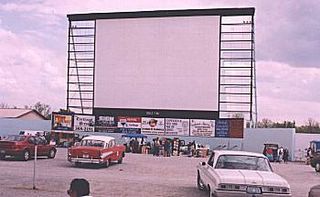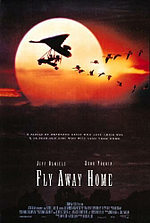Well, I hope all had a great weekend. More on mine later. First, though, the Force is rolling like a Wal-Mart driven sales event, fueled on Big Macs!
A friend of mine had this article posted on a group I belong to (thanks Mike). It seemed appropriate after the postings last week on some of the linked blogs:
I found this article by Orson Scott Card (Ender's Game, The Abyss)on Beliefnet.com. I thought it was an interesting view of the JediReligion for those Star Wars fans out here.
****************************
Under the Influence
Orson Scott Card
No Faith in This Force
Memo to would-be Jedis: in the new movie, the knights are elitist,dictatorial, and unconvinced that good is an absolute.
Star Wars fans are legendary for their loyalty. I saw plenty of thatin the 9:45 p.m. showing of Revenge of the Sith on its opening day.They had waited in line to get tickets to the very first showing atmidnight the night before, and then saw it twice more before theopening day was over. Many had obviously memorized all the howlinglybad lines. They began laughing out loud just before the line wassaid, and applauded at the wretched "emotional" moments in themovie.
But then, walking out of the theater, they fiercely defended themovie against anyone who dared to speak against it. It might bebadly written, but it's their badly written movie.
Some fans are so loyal they have even adopted "Jedi" as theirofficial religion on census reports and The Force as theirequivalent of a "personal savior."
In a way, this is kind of bittersweet. It shows that the universalhunger for meaning is still prevalent, even in our agnostic era,which is encouraging; but these true believers will eventuallyrealize that the philosophy behind Star Wars is every bit assophisticated as the science — in other words, mostly wrong and always silly.
It's one thing to put your faith in a religion founded by a realperson who claimed divine revelation, but it's something elseentirely to have, as the scripture of your religion, a storylinethat you know was made up by a very nonprophetic human being.
How Does the Force Stack Up As a Religion?
As a religion, the Force is just the sort of thing you'd expect aliberal-minded teenage kid to invent. There's no God and there areno rules other than a vague insistence on unselfishness and oath-keeping. Power comes from the sum of all life in the universe, andit is manichaean, not Christian — evil is simply another way of using the Force. Only not as nice.
Good and evil are in a constant and nearly equipoised tug-of-war inthe Star Wars series. But in the more recent movies, it seems thatthe goal of good people is not to wipe out evil, but rather for there to be a balance between the Light and Dark sides of the Force.
The new movie itself asserts a kind of equivalence. When the evil Palpatine says, "Good is a point of view--the Sith and the Jedi arealmost the same," we can dismiss this moral relativism as part of the deception of the dark side.
But in a pivotal scene, Obi-Wan says what amounts to the samething: "Only a Sith deals in absolutes."
Isn't that odd? The only thing both sides agree on is that peoplewho believe in absolute good and evil are bad!
I suspect that Lucas realized, after writing "Good is a point ofview," that all his friends actually believed that. So he had to make it clear that moral relativism was the right way after all—so he had Obi-Wan say that absolutism was a Sith thing, even though inthe actual story, the best of the Jedis show an unbending commitmentto absolute Good.
It's a terrible thing, I suppose, for a writer to invent a religionand then discover that he and all his friends are on the wrong sideof it.
The Jedi: A Ruling Elite
Revenge of the Sith gives us our first chance to see the Jedi council as anything more than an incredibly boring business conference that we were forced to attend between action scenes. Not as if the Jedi masters discussed ideas — it was still a business meeting, in which they told each other obvious things and then made decisions by a sort of instant consensus that is never achieved inthe real world except in really scary dictatorships. Clearly they were modeled after an adolescent view of the Knights of the RoundTable.
But they aren't a political or military group, despite the talk of government, of war and peace. They are also monks of a martial order, who have trained each other and who live under a strict religious discipline.The Jedi may claim to be in favor of democracy, but in fact they function as a ruling elite, making their decisions among themselves.
They occasionally submit to the authority of the legislature, and they seem to respect the rule of law, though whose law it's hard to say. By and large, however, they decide among themselves what they're going to do and when it's OK to break the law and defy the civilian authority.
They are, in fact, utterly anti-democratic, like a militia that owes nothing to civilian authority. Eventually there's going to be a coup.
And even though they train like crazy to learn to master their power, none of their discussions as a council are devoted to considering what is right and wrong. They simply know the rules and, except for those being tempted by the Dark Side, they never question them.
They have way too much power.
There are other ways that the actual story subverts the
official "religion" of the Force. Take the idea that you become a Jedi by training. Well, sure — but you are only chosen to train for the Jedity if you have some kind of inborn power.
You can dedicate your life to serving the Force if you want, but you can't become a Jedi warrior-priest unless you were born with the power and anointed as some Jedi's apprentice.
In other words, they may seem very inclusive—one Jedi from every species (except for humans, who are way overrepresented)—but in fact they're a self-perpetuating aristocracy.
Who Are the Bad Guys?
So instead of looking at the story line of Episode III as a conflict between good and evil, you could read it as a conflict between the entrenched aristocracy trying to preserve their monopoly on power, and an ambitious upstart, who is determined to break that monopolyand take control for himself.
The only reason we don't see it that way is because the other side is so much more evil. But the bodycount left behind by Jedi knights is — or should be — disturbing.
In other words, despite whatever political message Lucas might or might not have intended, the Jedi are the smug orthodoxy, always congratulating themselves on their rectitude. No wonder the whole senate seems thrilled when the new Emperor announces the fall of theJedi. They don't know yet how evil the Emperor will be, but they know they don't mind having the meddlesome Jedi out of the way.
A Conservative Religion
The overt religion of Revenge of the Sith is a kind of democratic
pantheism, but the real religion is for the privileged few, who get to decide what's best for everybody else and then enforce their own rules, all in the name of "the Force."
How did a nice Protestant boy like George Lucas come up with an official religion more rigidly hierarchical and doctrinally uniform than Catholicism?
It's the religion of the people who are Chosen, and you aren't readyto have a share of the power until we say you are. Quite theopposite of, say, the Quakers or even the Puritans, who eschewed permanent religious hierarchies.
Even the afterlife is reserved for the few, the proud, the Jedi. As we learned at the end of Return of the Jedi, even the most dark-side-serving of ex-Jedi mass murderers can, with a single "good" act like refusing to murder his own son (which even the most evil men generally avoid), earn the right to eternal life as the equal of true saints like Yoda and Obi-Wan.
But not one of the others who died in the war against the evil Sith emperor was similarly granted a life after death—or at least, if they were, they apparently weren't allowed on camera at the end of Return of the Jedi. Maybe the non-Jedi had to stay in their own segregated section of rock-'n-roll heaven.
No! That's not fair! The Jedi devote their whole life to the service of others!
But they're not chosen on the basis of their virtue—for all we know, there are millions of people more virtuous and unselfish than they.
And since they alone get to determine what "the good of others"actually consists of (though it does seem to include a lot of killing), how are the Jedi distinguishable from any number of other dictatorial groups that justify their actions by claiming that they do it all for the little guy?
So it might not be such a good thing if the Star Wars films become the first movies to lead to a real-world religion.
Of course, all this quibbling would be moot if, in fact, the Jedi religion actually worked—if people could tap into the Force and do the miracles that the Jedi routinely perform.
But it doesn't work. No matter how intensely you believe, you can't leap tall buildings with a single bound or drive a car with your eyes closed.
So if a religion is known to be fictional, trains its exclusive practitioners to be killing machines, and doesn't actually work in the real world, why do people call themselves Jedi?
As a protest against religion in general?
As a yearning for power?
Or as a dream of a world in which virtue, however it's defined, can actually do something tangible against the evil in the universe?





